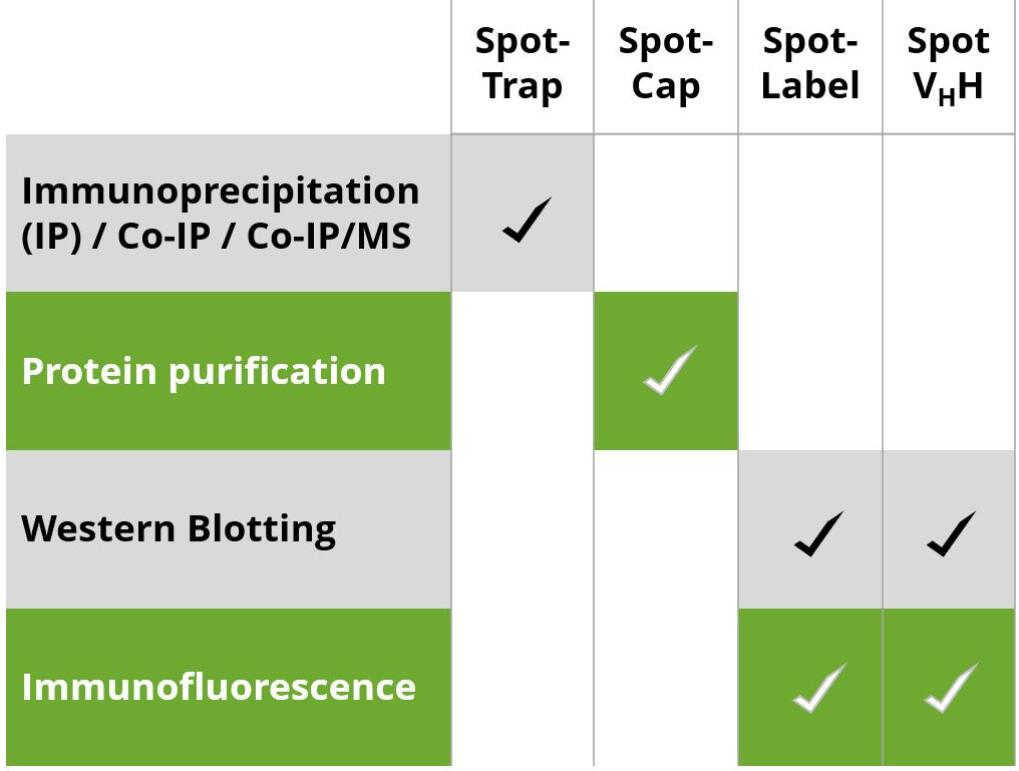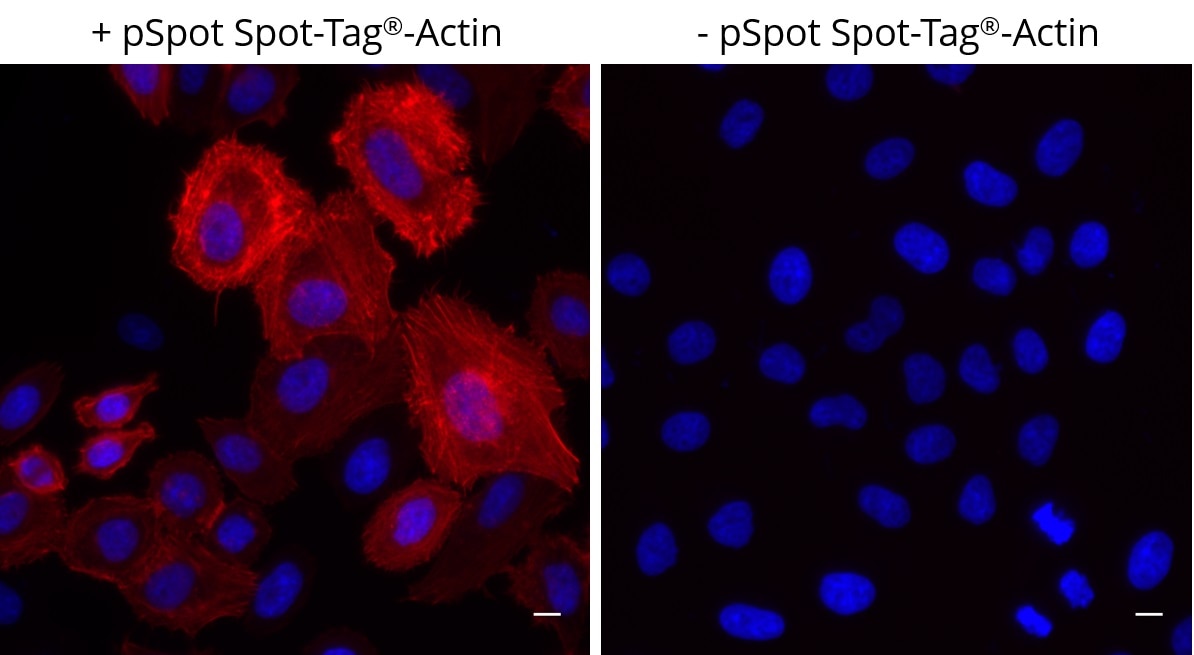Validation Data Gallery
Product Information
anti-Spot-Tag VHH/ Nanobody conjugated to fluorescent dye for immunofluorescence, microscopy, and immunoblotting of Spot-tagged proteins
| Description | Immunofluorescence of Spot-tagged proteins with anti-Spot Nanobody conjugated to fluorescent dye. Spot-Label is much smaller compared to conventional primary plus secondary IgG antibodies (IgG complex). Due to its small size, Spot-Label is optimal for effective labeling with minimal fluorophore displacement for super-resolution microscopy.
• Capture and detection tag without compromises in applications • Higher image resolution • Superior accessibility and labelling of epitopes in crowded cellular/organelle environments • Strong avidity effect from bivalent form of Spot-VHH • Fulfills highest requirements on antibody validation: structure and function characterized |
| Applications | IF |
| Host | Alpaca |
| Specificity/Target | Spot-Tag® (PDRVRAVSHWSS) |
| Conjugate | Alexa Fluor® 568 |
| Physical State | Liquid |
| Suggested Dilution | IF: 1:800 |
| Type | Nanobody |
| Class | Recombinant |
| Clonality | Monoclonal |
| Clone | CTK0216 |
| Calculated MW | 30.3 kDa |
| RRID | AB_2889375 |
| Immunogen | Beta-catenin, engineered epitope |
| Format | Recombinant alpaca single domain antibody, bivalent |
| Affinity (KD) | Dissociation constant KD of 6 nM |
| DOL | 1 fluorophore per bivalent Nanobody, site-directed conjugation |
| Spot-Tag® Origin | Engineered 12 amino acid sequence modified from the unstructured N-terminus of beta-catenin |
| Cross Reactivity | The Spot-Nanobody shows minimal cross reactivity with beta-catenin. |
| Excitation/ Emission | Excitation max: 578 nm, Emission max: 603 nm |
| Storage Buffer | PBS, 5 mM EDTA, preservative: 0.09 % sodium azide |
| Storage Condition | Shipped at ambient temperature. Store at -20°C/-4°F. Stable for 6 month. Protect from light. |
| Size | 10 μL; 50 μL |
| Note | This product is for research use only, not for diagnostic or therapeutic use |
Documentation
| SDS |
|---|
| ebAF568_SDS_Spot-Label® Alexa Fluor® 568 (EN) |
| Datasheet |
|---|
| Protocol Spot-Label Alexa Fluor 568 (PDF) |
| BROCHURE |
|---|
| Chromotek nanobodies brochure (PDF) |
Publications
| Application | Title |
|---|---|
PLoS Genet The chromatin remodeling protein CHD-1 and the EFL-1/DPL-1 transcription factor cooperatively down regulate CDK-2 to control SAS-6 levels and centriole number. | |
bioRxiv Polo-like kinase 1 prevents excess microtubule polymerization in C. elegans oocytes to ensure faithful meiosis | |
bioRxiv Structural insights into SSNA1 self-assembly and its microtubule binding for centriole maintenance | |
bioRxiv The C. elegans homolog of Sjögren's Syndrome Nuclear Antigen 1 is required for the structural integrity of the centriole and bipolar mitotic spindle assembly |



